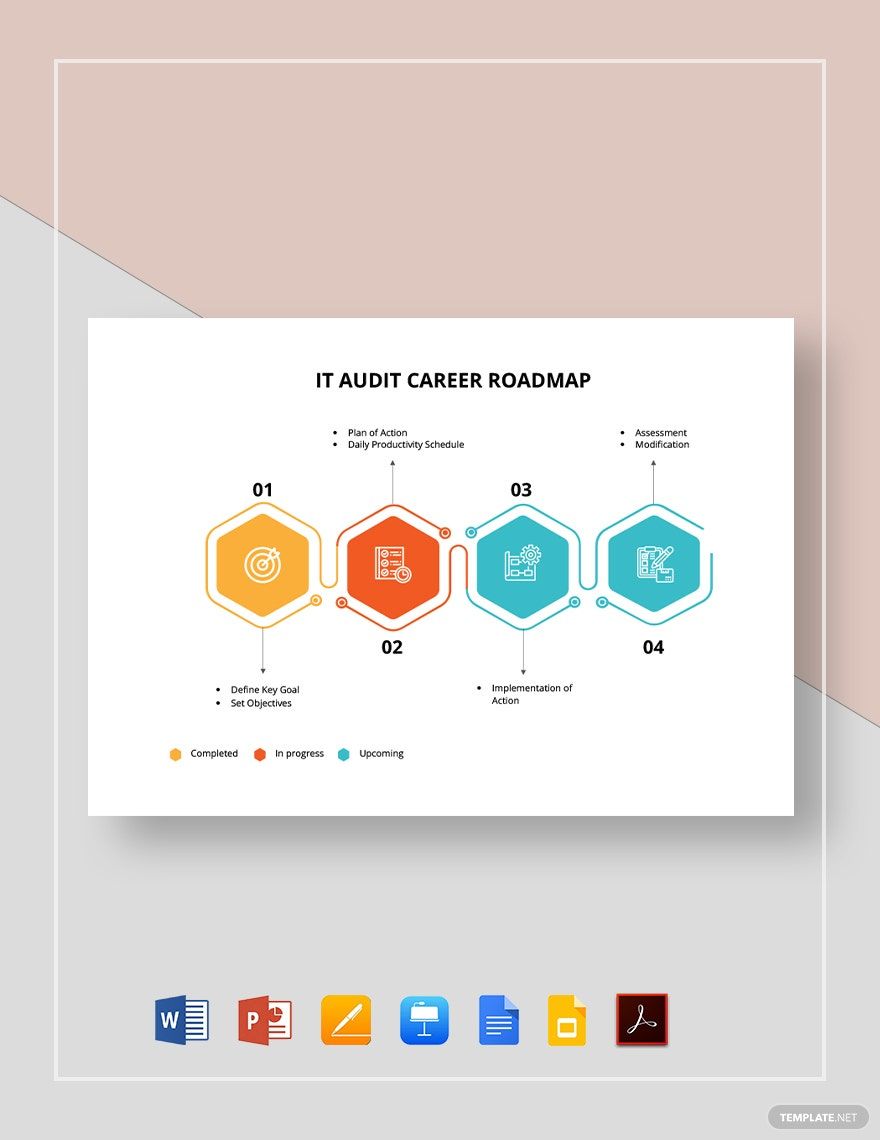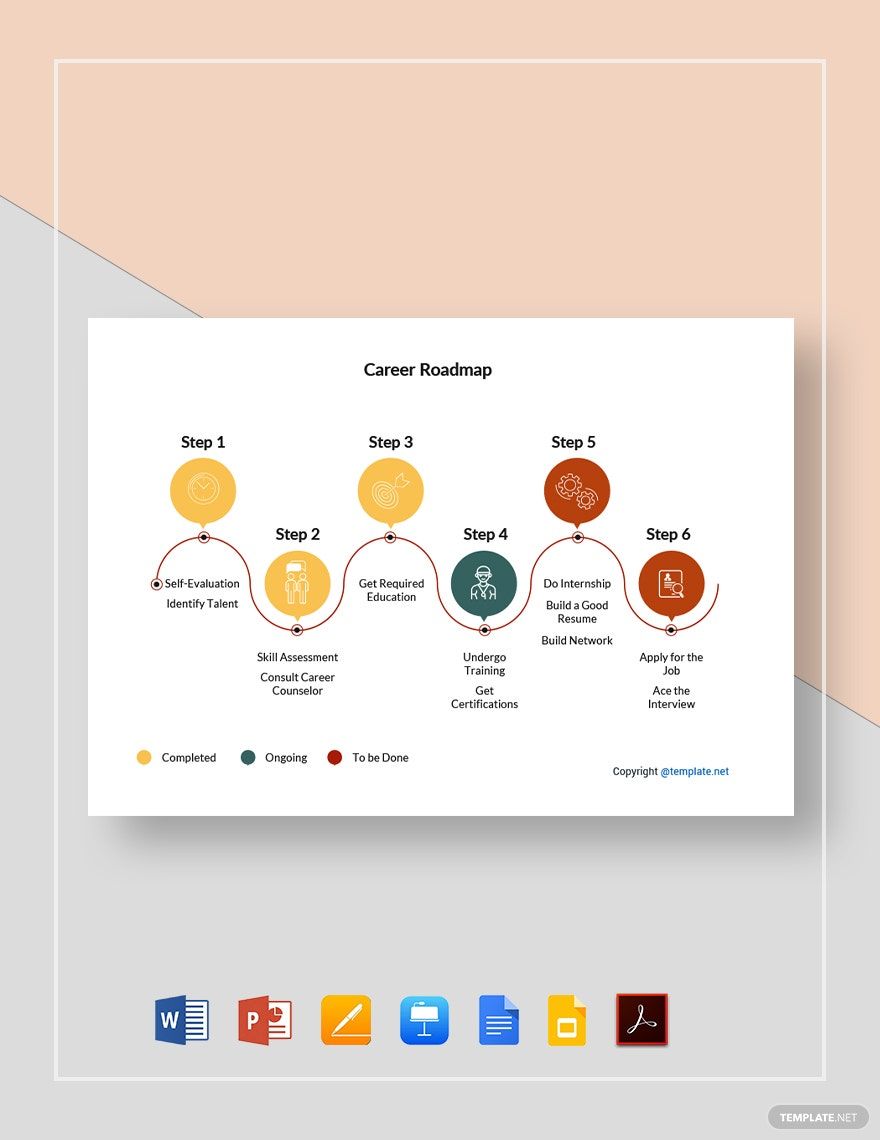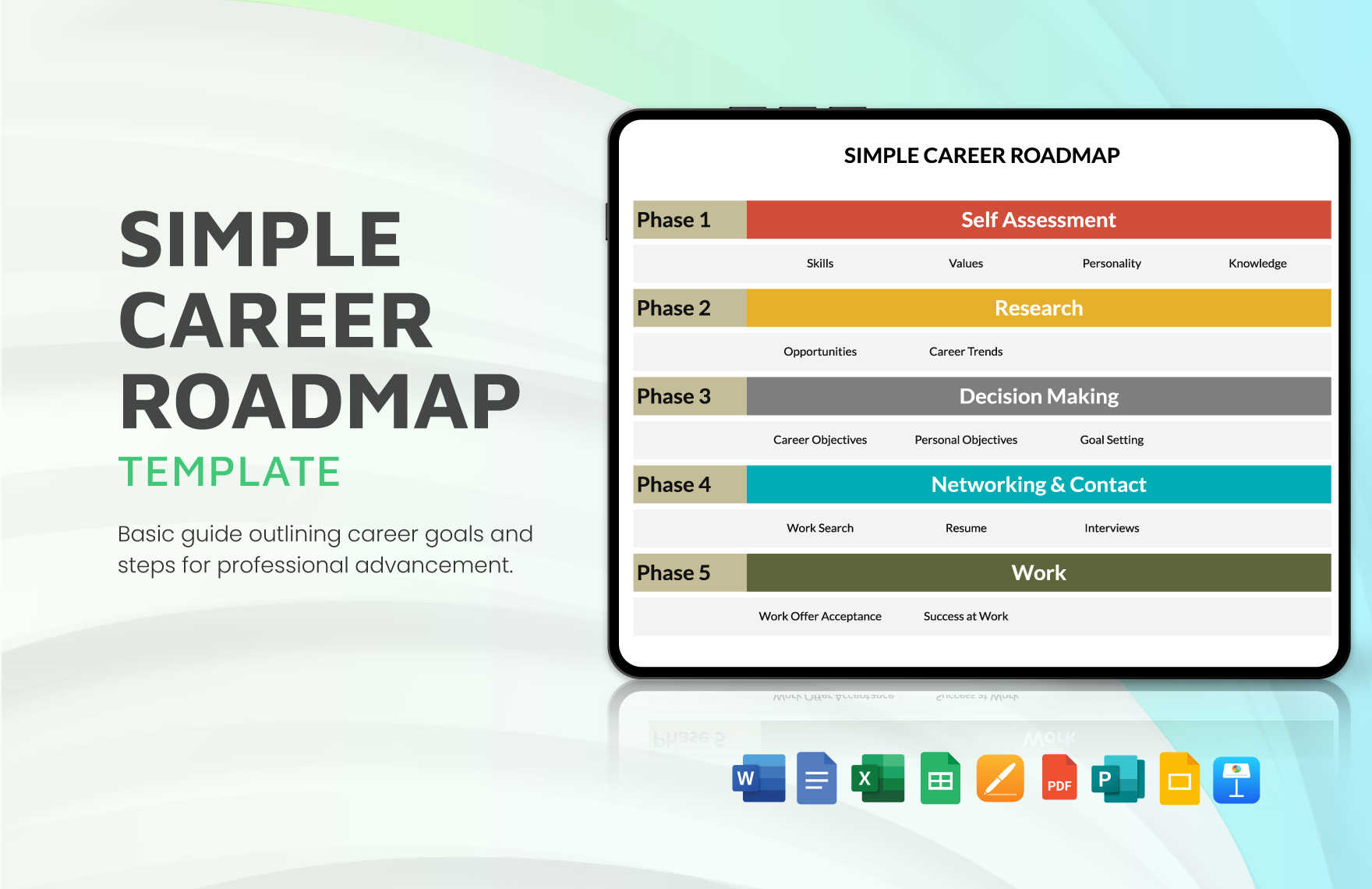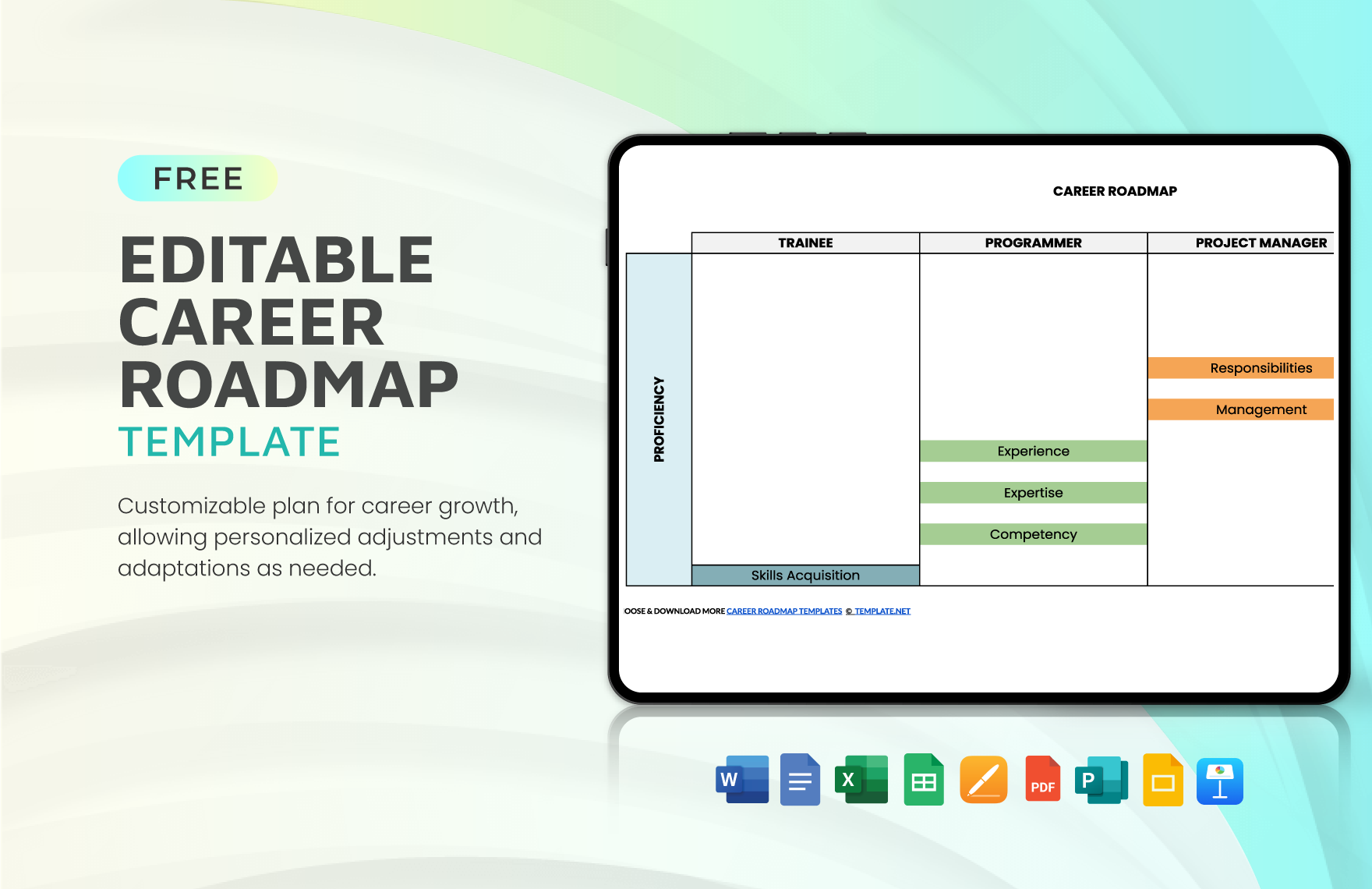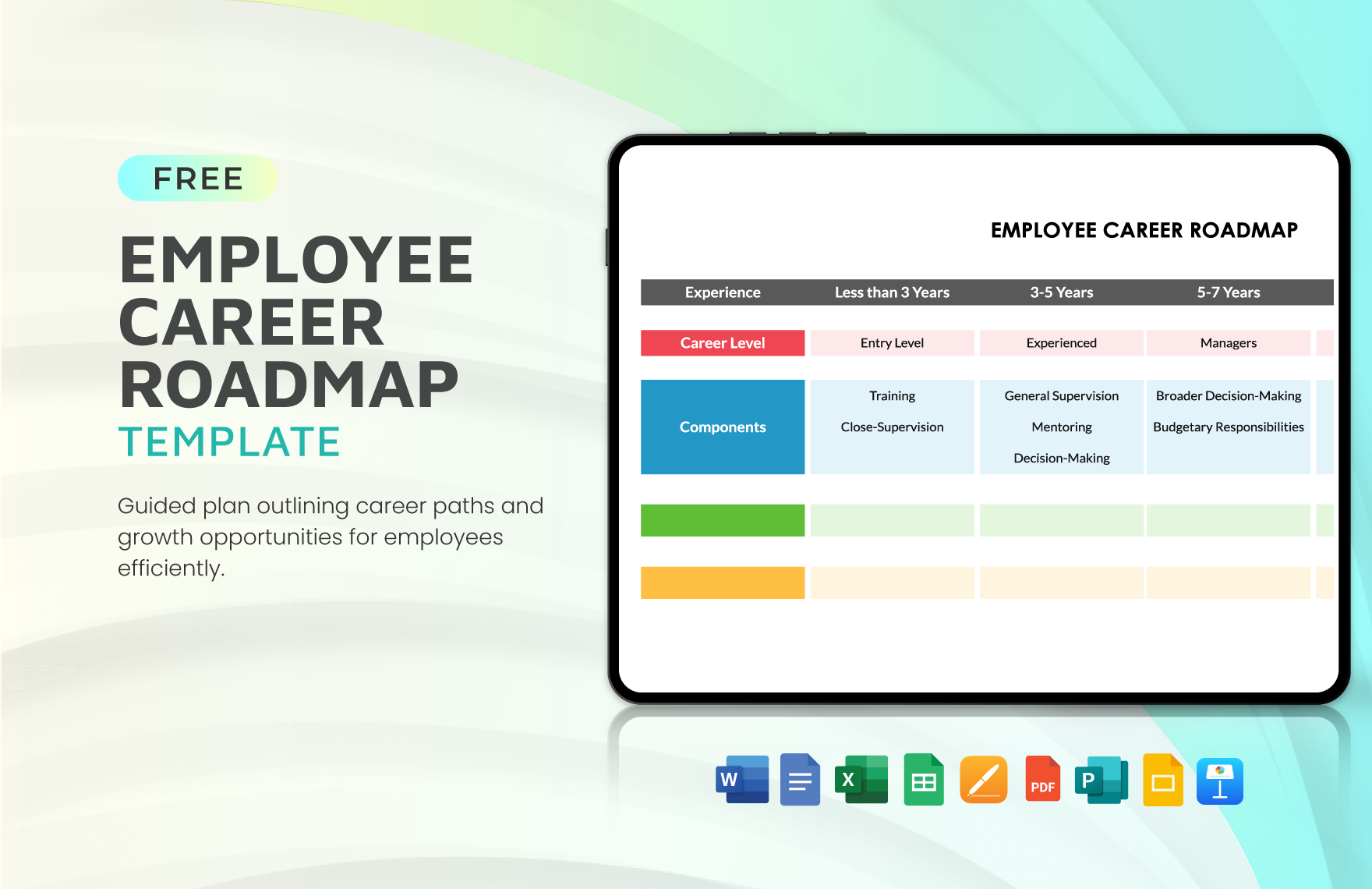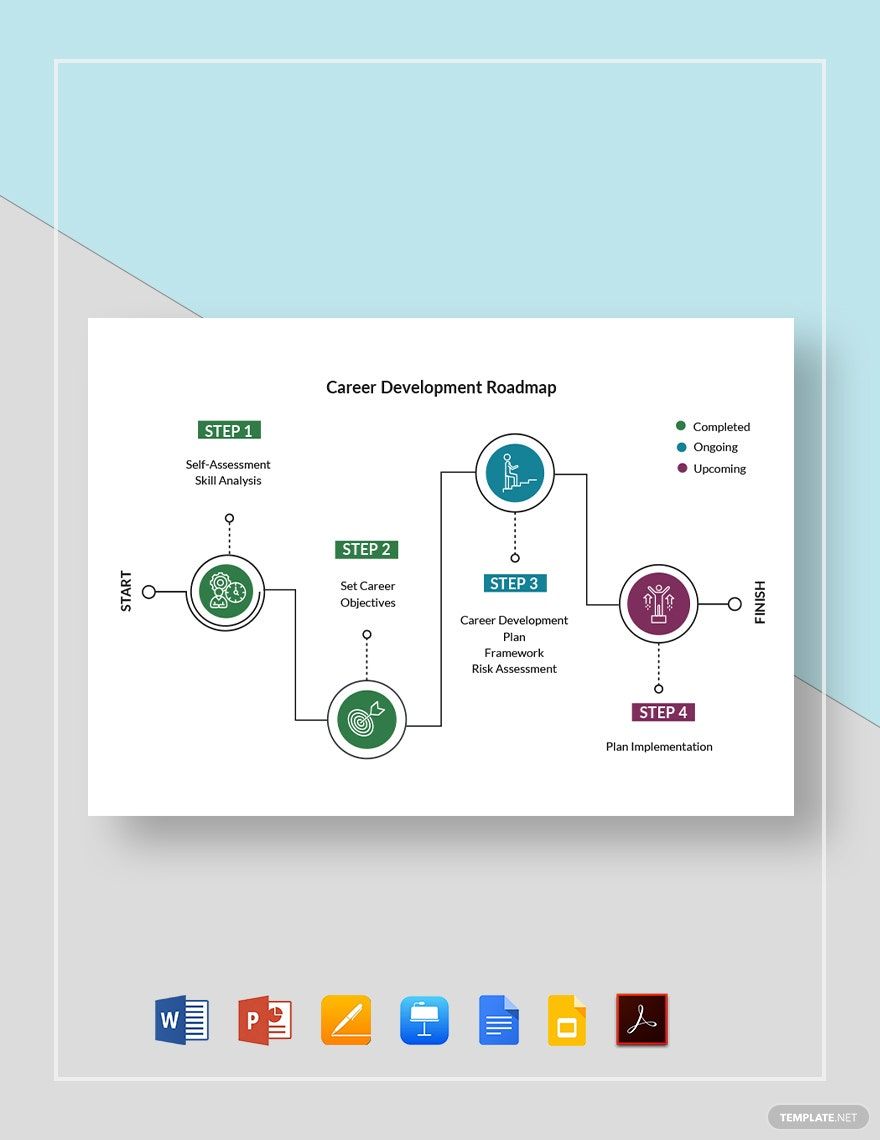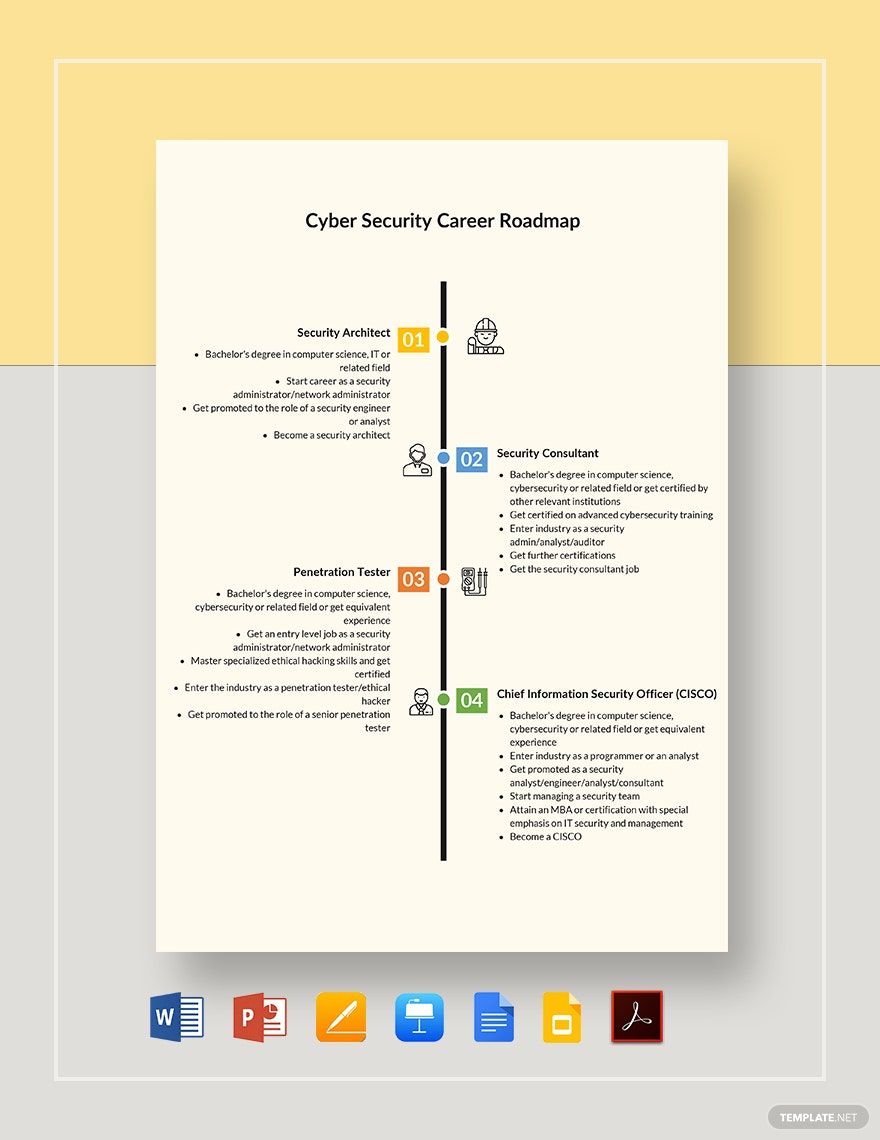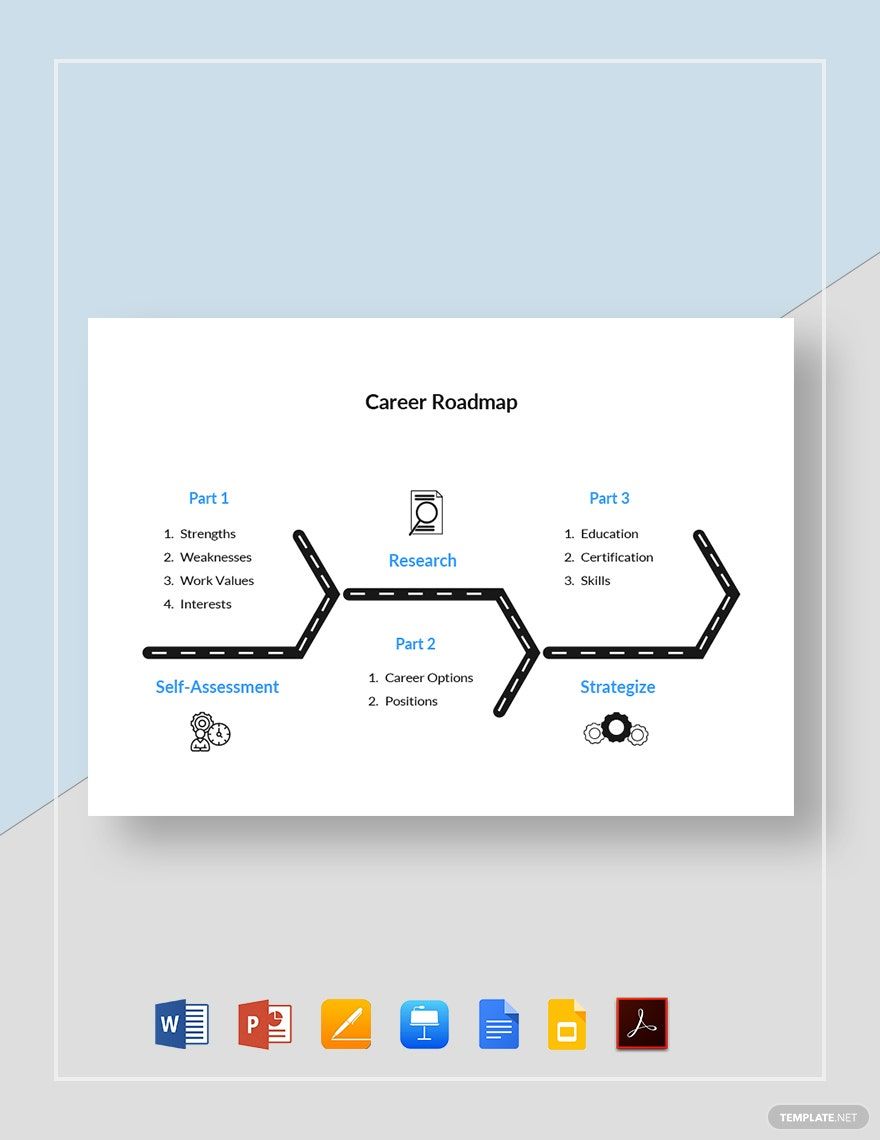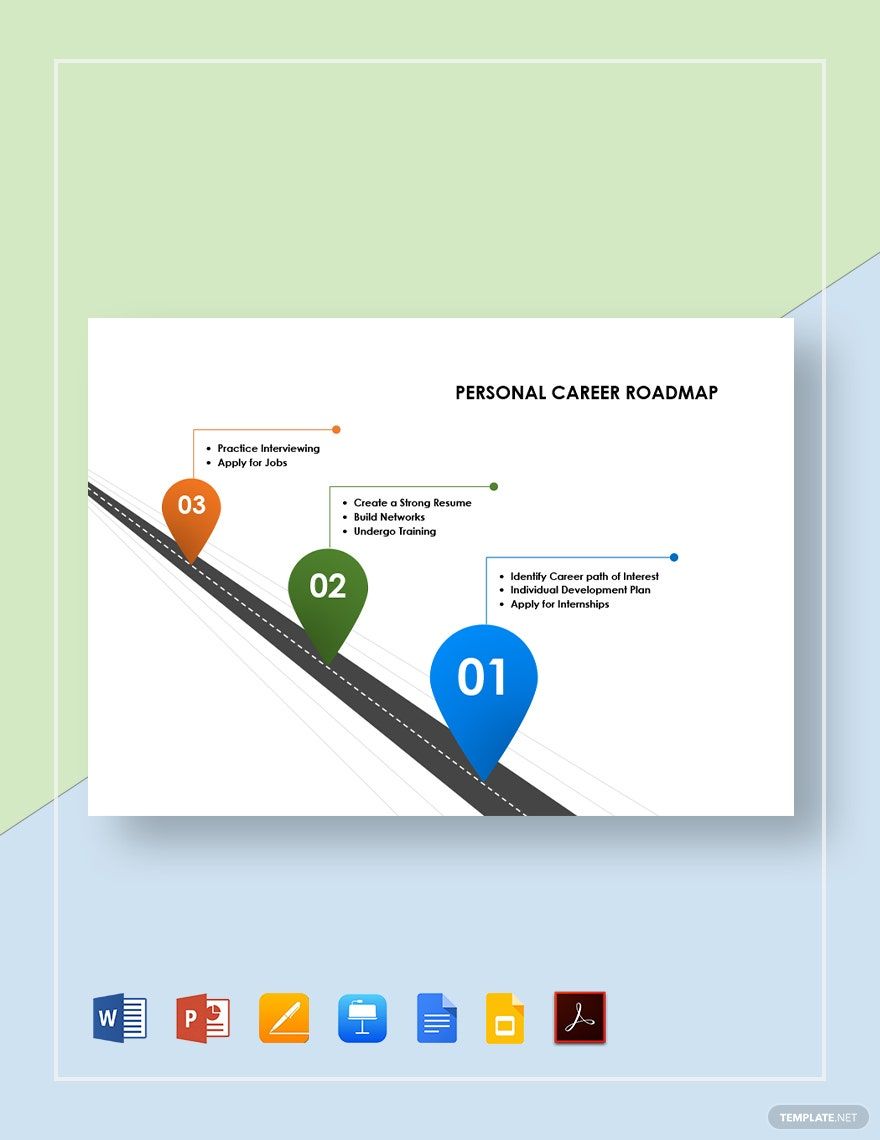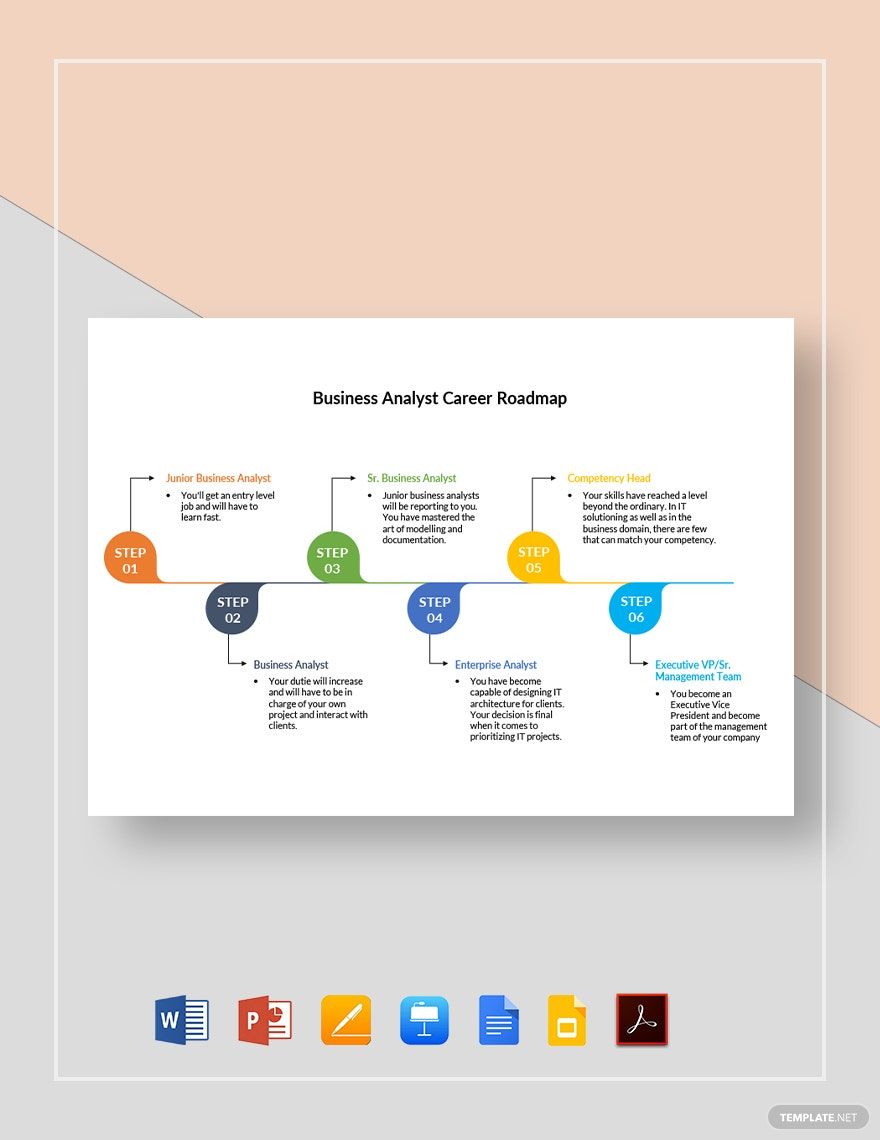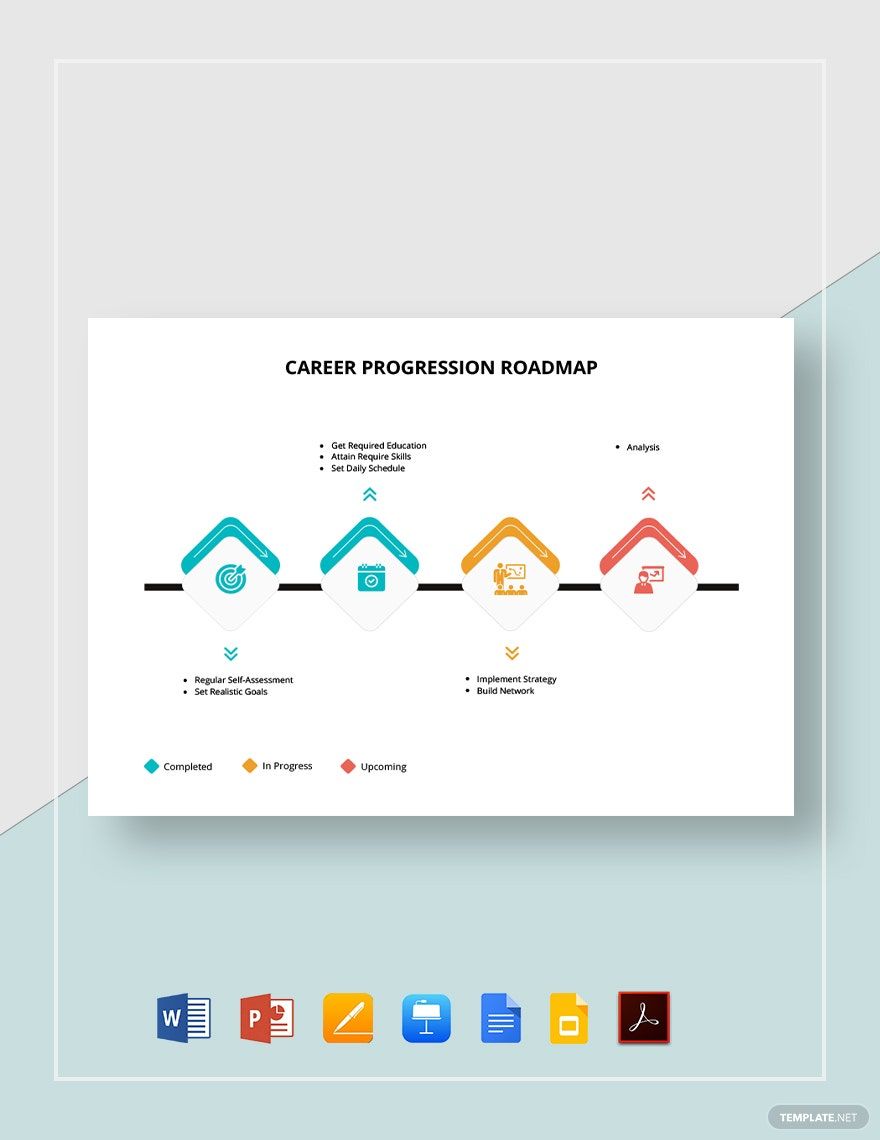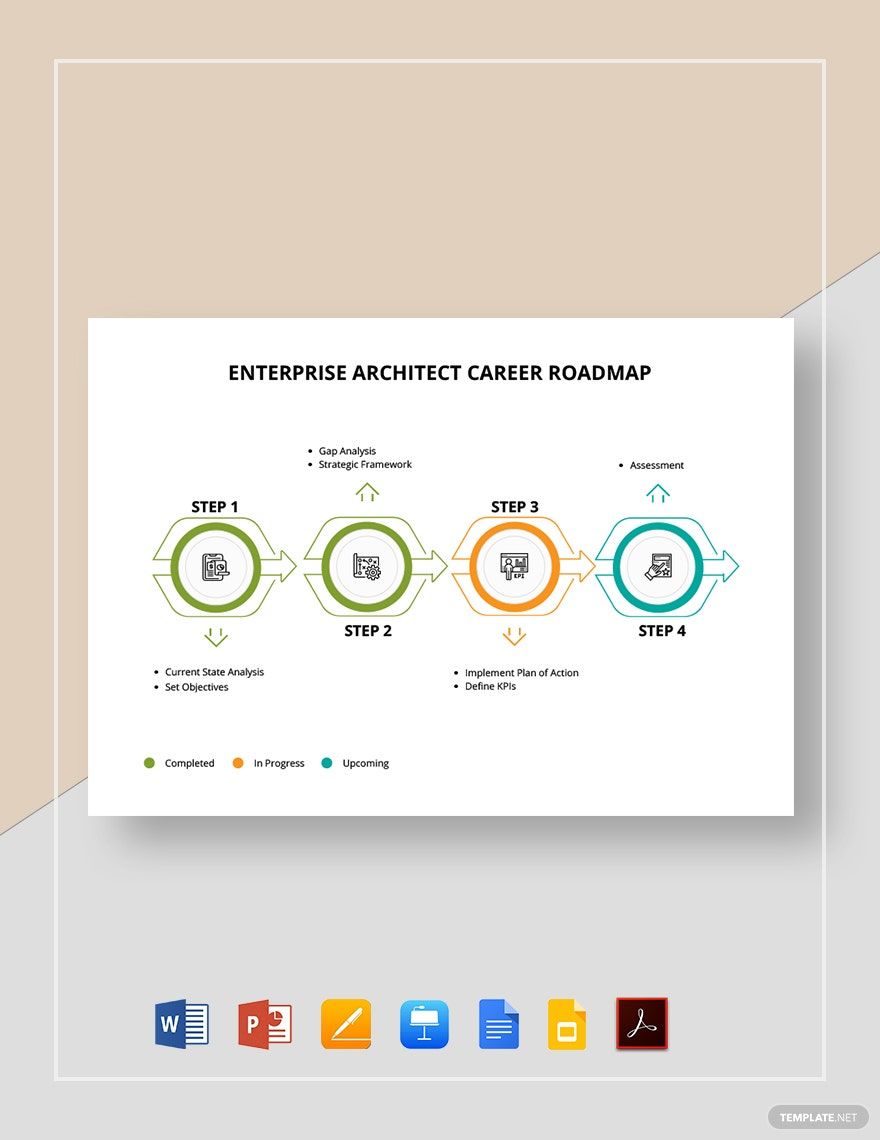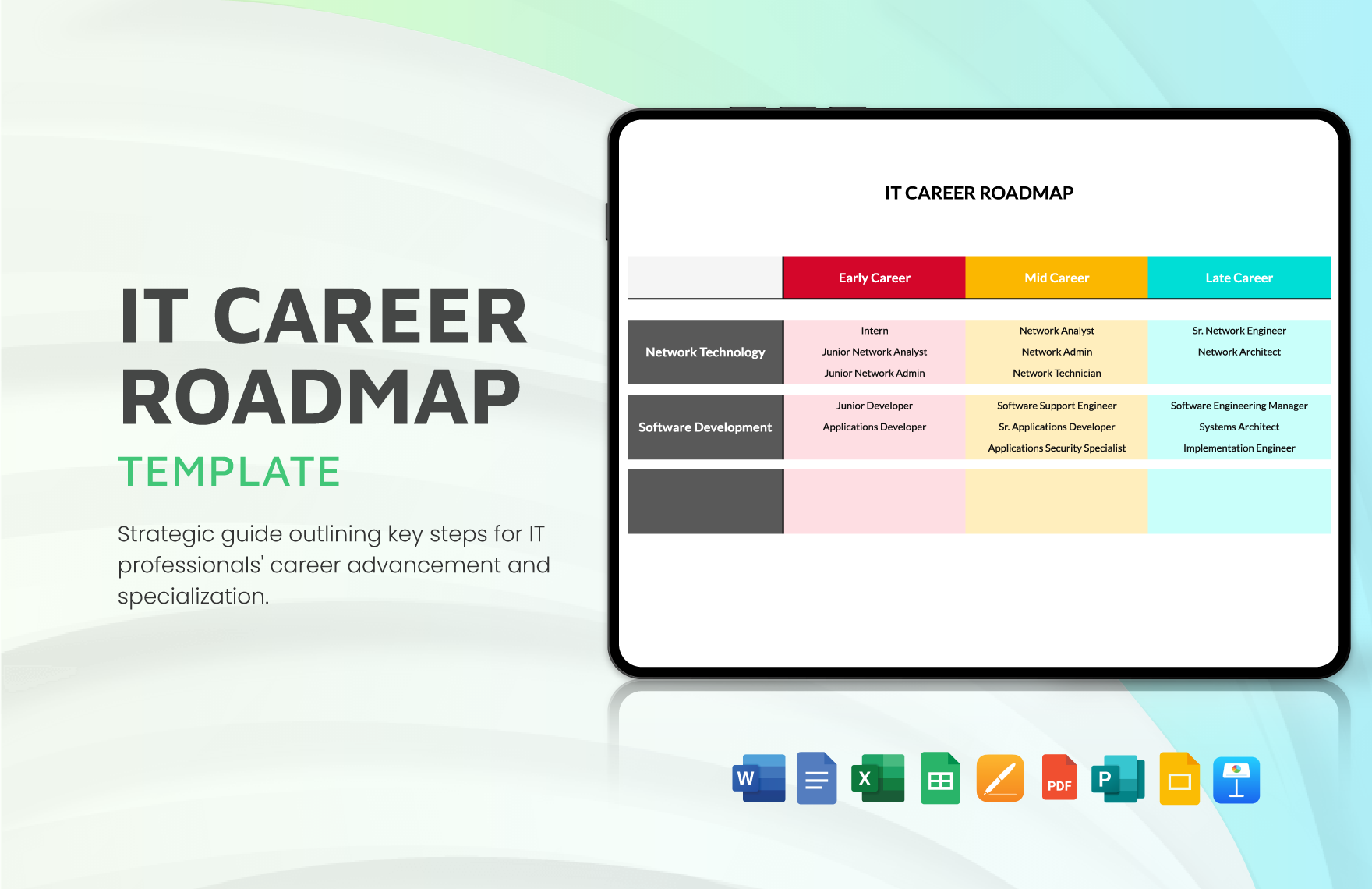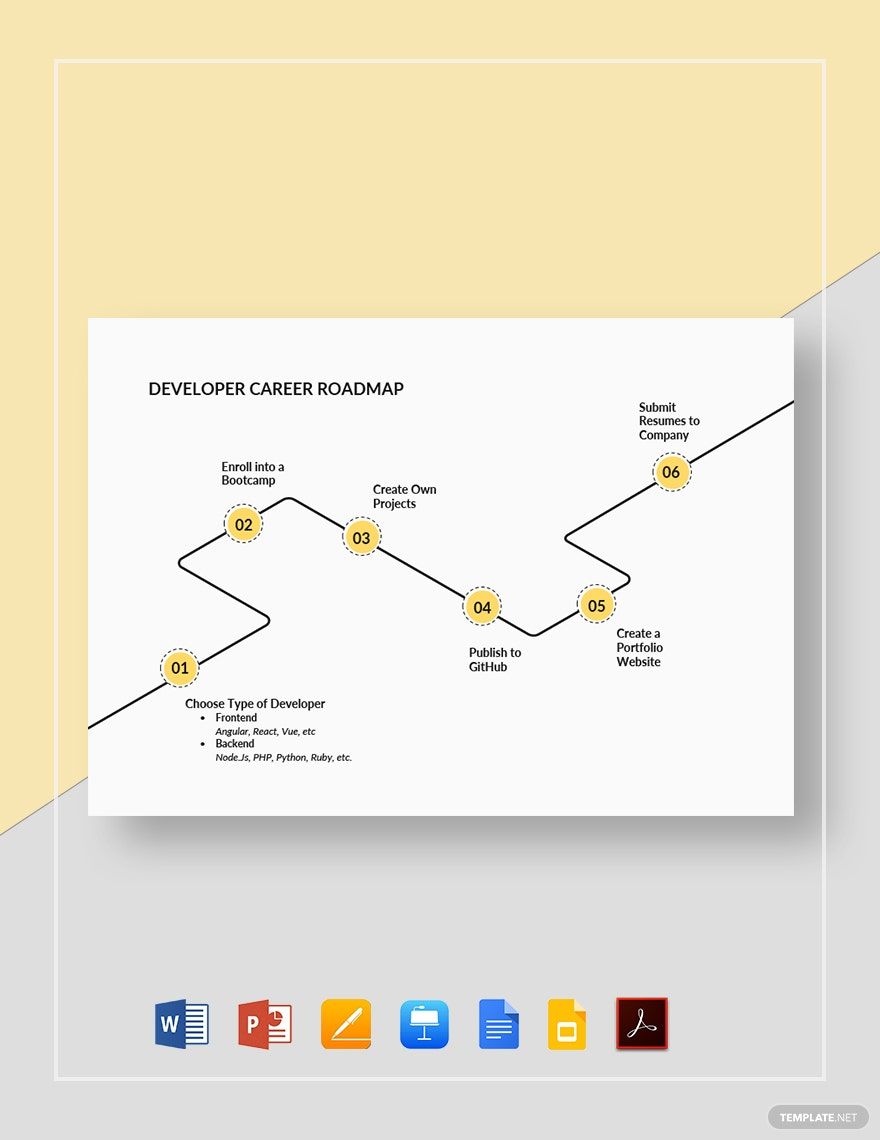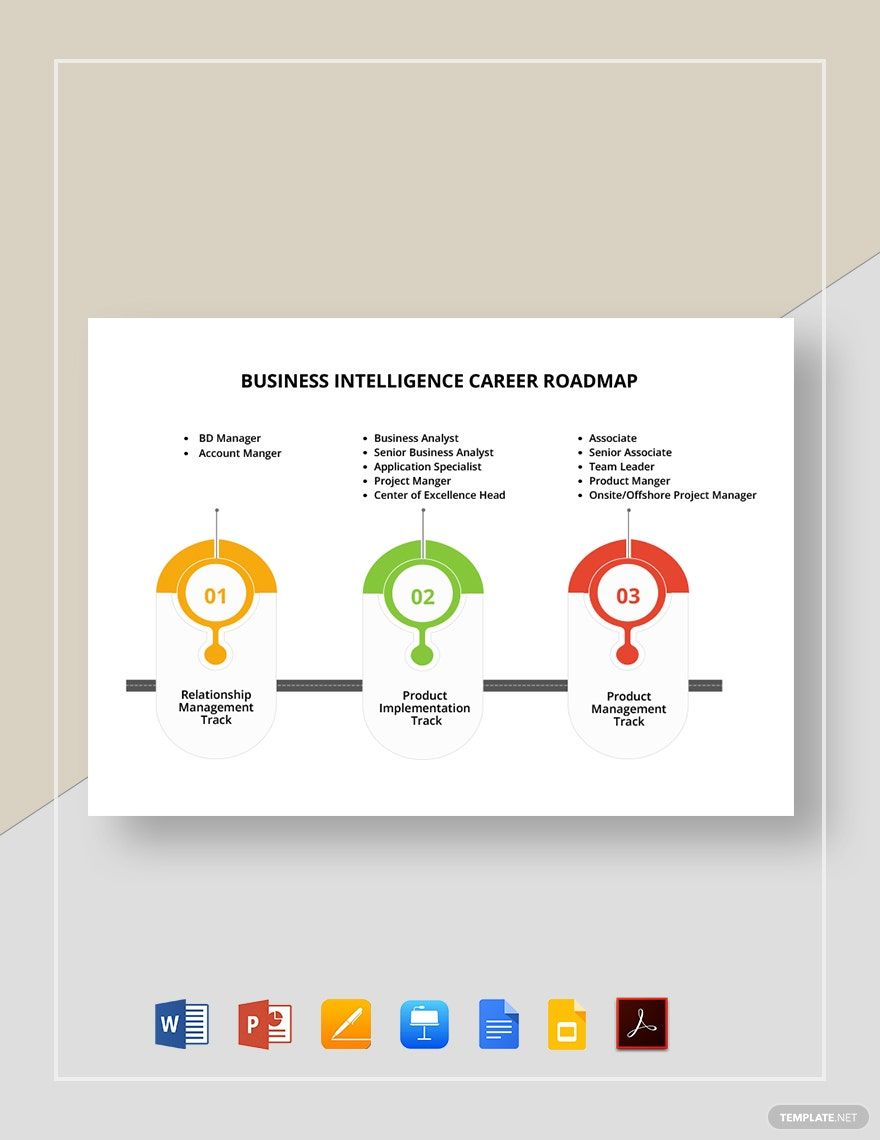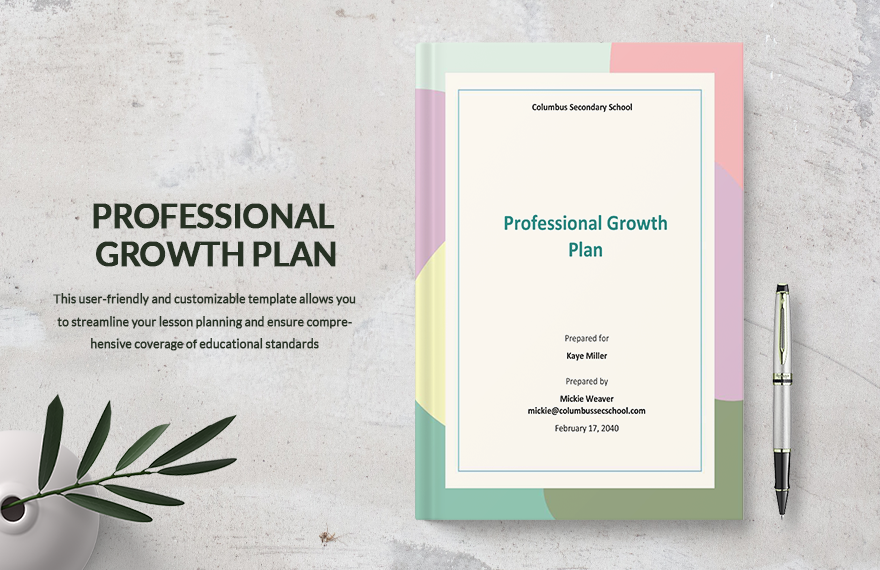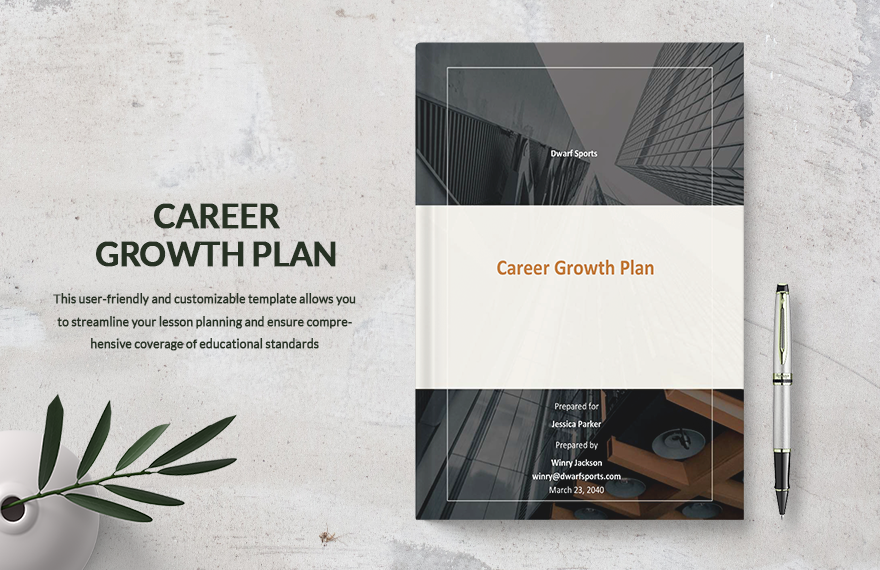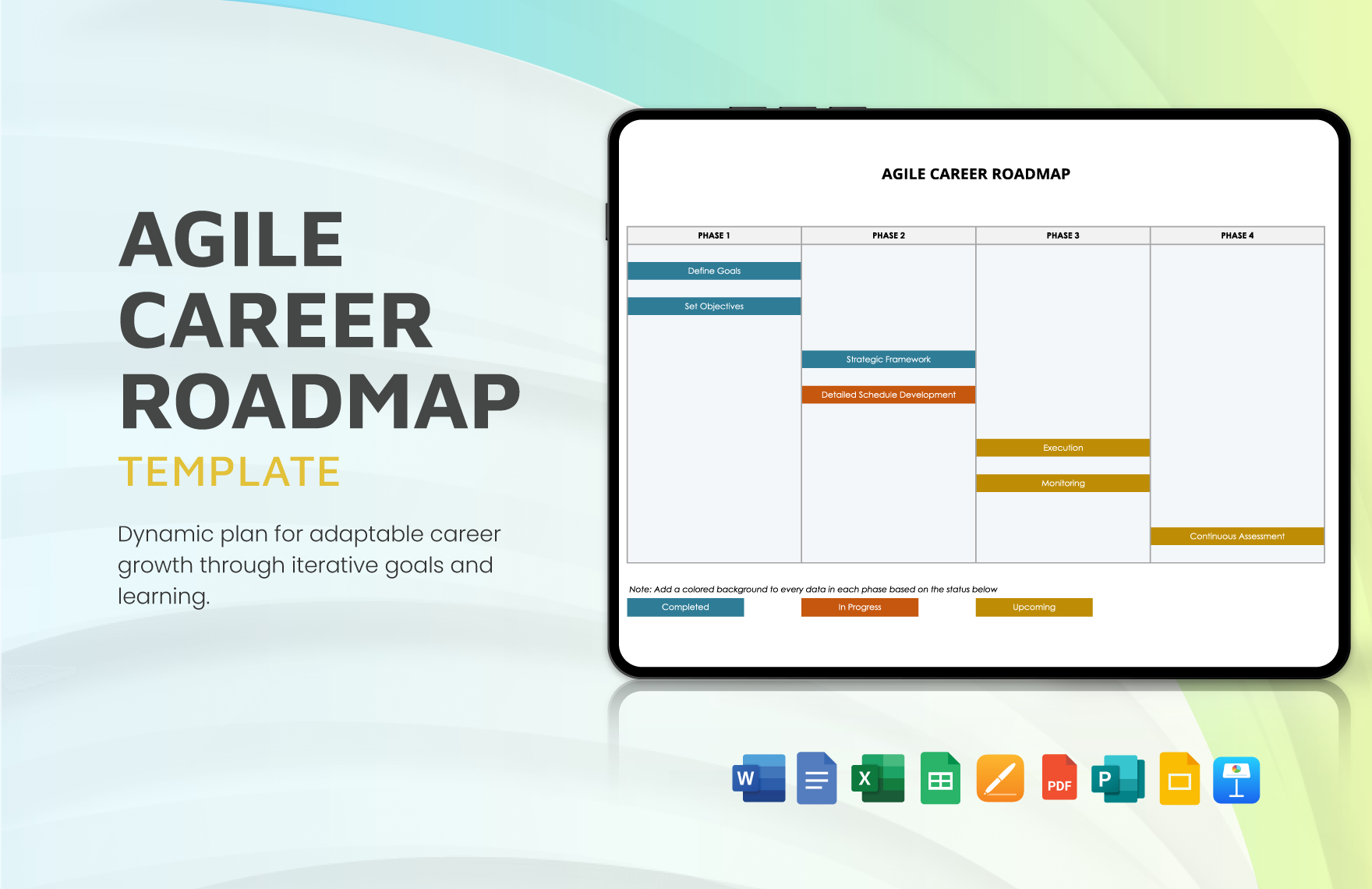Having a reasonable career plan set up is a fundamental part of growth for professional and personal development. Most people find it challenging to gain new skills than it is to accomplish easy tasks. This is because it makes them a more valuable commodity in the business world. Are you planning for the development of your career? Perhaps you need a visual data to help you out? If so, use our customizable and print-ready Career Roadmap Templates! It includes original suggestive headings and contents. Available for download through Google Docs, you can save money and time. Get your work done faster and smarter by subscribing now!
Career Roadmap Template in Google Docs
Excel in Your Career with Template.net's Free Career Roadmap Templates in Google Docs. Make a Timeline, Infographics, Gantt Chart, or Graph Using Our Templates in Google Docs, PowerPoint, and Other Software. Check Out Our Resume Template and Product Roadmap Templates as Well. Stop Hesitating and Start Downloading a Template Now!
- Business Plans
- Receipts
- Contracts
- Manual Templates
- Note Taking
- Forms
- Recommendation Letters
- Resignation Letters
- Birthday
- Outline
- Quotation
- Charts
- Handbook
- Family Tree
- Surveys
- Workout Schedule
- Study Guide
- Ebooks
- Chore Charts
- Training Manual
- Research
- Screenplay
- Wedding
- Lesson Plan
- Brief
- Organizational Charts
- Syllabus
- School Calendar
- Attendance Sheet
- Business Cards
- Student
- Review
- White Paper
- Essay Plan
- Vouchers
- Timeline Charts
- Reference
- Estimate Sheet
- Mind Map
- Cover Letters
- Interview
- Posters
- Report Cards
- Fax Covers
- Meeting Minutes
- Roadmaps
- Cookbook
- Curriculm Lesson Plan
- Bibiliography
- Rental Agreement
- Legal Templates
- Party
- Pleading Paper
- Pay Stub
- Classroom Seating Charts
- Sub Plan
- IT and Software ID Card
- Event Proposal
- Likert Scale
- Doctor Note
- Labels
- SOP
- Comparison Charts
- Project Reports
- Daily Schedule
- Weekly Calendar
- Customer Persona
- Medical
- Coupons
- Resumes
- Invoices
- Christmas
- List
- Executive Summary
- Marketing
- Budget
- Meal Plan
- Friendly Letters
- Itinerary
- Reference Letters
- Church
- Letters of intent
- Reading logs
- Assignment agreement
- Mothers day card
- Retrospective
- Simple loan agreement
- Rent Receipts
- One page business plan
- Weekly Reports
- Offer letters
- Prescription
- One page proposal
- Case brief
- Roster
- Log Sheets
- Music
- Schedule cleaning
- Printable survey
- Internship report
- Fundraising
- Research proposal
- Freelancer agreement
- Delivery note
- Madeline hunter lesson plan
- Training
- Social media calendar
- Catalogs
- Grant proposal
- Affidavit
- Lean business plan
- Schedule hourly
- Mon disclosure agreement
- Bill of lading
- Sitemap
- Campaign
- Education
- Cash Receipts
- Introduction letter
- It and software profile
- Business case
- Annual Reports
- Personal letter
- Calendar Google Docs
How to Create a Career Roadmap in Google Docs
Currently, it is challenging to hold a job for long periods. The term 'job security' almost doesn't apply to many industries. That is why it is essential to figure out how to build a strategic roadmap for your career. With it, you can guide you with your occupation in a way that can help you grow in your field, with the ever-changing economy in mind. Below is a guide that will help you plan a career roadmap.
1. Discover Your Purpose
Figure out and take note of the most efficient route for your career and identify your values, interests, skills, and personality. There is no right or wrong in choosing which way to start because career development is a life-long learning process.
2. Explore Occupational Options
Informational interviews are a great way to start building your network for your most ideal jobs out there. Determine which profession fits your talents, interests, values, and personality best. You will learn about the aspects of career development, what managers expect from workers, and how to pursue new opportunities.
3. Career Testing
After you gather all the information you need, test your capabilities through internships or job shadowing in a company. This helps provide real-world experience that enables you to place everything you've learned into action. Practice will help you develop skills that you can apply to a potential job.
4. Implementation
After all these preparations and research, you should be ready for a job. Apply for captivating, yet attainable positions by sending your resume or job application letter to the companies you desire to work for. Remember to do your best with your interviews, and don't ever be discouraged if a certain company doesn't hire you for the role.
Frequently Asked Questions
Are there different types of career development?
Yes. Here are a few examples found below:
1. Organization Development - involves planning and managing programs arranged by the heads of the organization. It is based on vital and scientific methods that help organizations build their capacity for change and improves effectiveness through developing, enhancing and reinforcing strategies, structures, and processes.
2. Employee Development - is a process where the employee undergoes various training programs with the assistance of their employer. This is to enhance their skills and learn new knowledge and competences in support of the organization's mission and goals.
3. Management Development - is concerned with upgrading the expertise, growth, and capacity of the managers. This hopes to accomplish the additional process of guiding human resource movement across various hierarchical levels. It is the managements' responsibility for ensuring the success of the organization.
4. Career Development - This path offers an ongoing process for employees to improve their skills and expertise. This process leads to mastery of their current employment, promotions, and transition to new or specific roles.
What should a career plan include?
A career plan is a practical strategy. The process encourages you to assess your abilities and desires, set your career goals, and create actions in place to help you achieve them. A career plan is a continuous process that provides an overview of your current skills and experiences.
What are the five stages of career development?
1. Exploration
2. Establishment
3. Mid-Career
4. Late Career
5. Decline
What are the six steps of the career planning process?
1. Assessment
2. Investigation
3. Preparation
4. Commitment
5. Retention
6. Transition
What is the first step in mapping out our careers?
In planning out a career path, you must build a comprehensive personal vision statement that helps you visualize where you want to be during different points in time. Figure out the most efficient route for your career destination.
